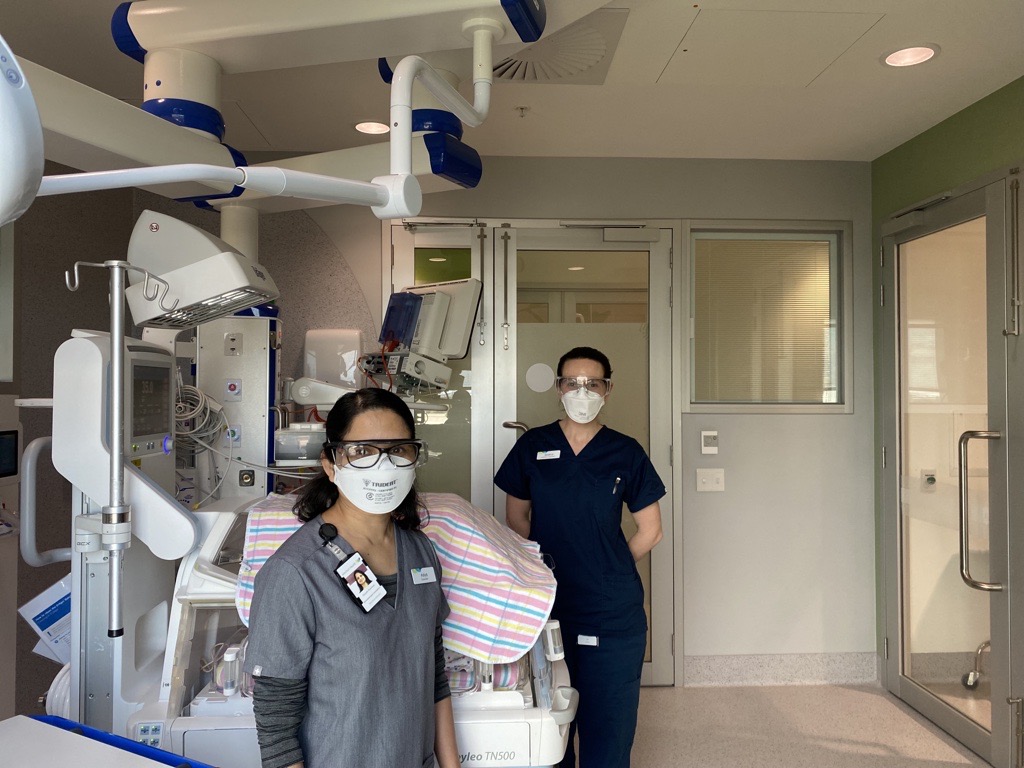A Victorian hospital is helping give some of our sickest and smallest babies the best start to life with a new service that supports breastfeeding. 
For the first time, Joan Kirner Women and Children's (JKWC) at Sunshine Hospital is providing low-cost breast pump hire to support families with premature babies who are facing financial barriers.
Research shows breast milk can be protective against immediate and long-term health challenges of being born prematurely, but most mothers require support to establish and maintain lactation.
"Premature babies may not be physiologically mature enough to feed at the breast directly for weeks or months after birth," JKWC Lactation Services Clinical Nurse Consultant Jessica Hughes said.
"To establish and maintain their milk supply, mothers are encouraged to use a breast pump to express 8-12 times a day and the milk is fed to a baby via an infant feeding tube, until they are ready to feed at the breast," Mrs Hughes said.
The mothers of premature babies, who require care in the JKWC Neonatal Intensive Care Unit (NICU), have access to a hospital-grade breast pump.
Mothers who wish to express breastmilk at home are required to hire or buy a pump.
"Some families cannot afford to access an electric breast pump in the community with upfront purchase costs often exceeding $300, or, $35 per week with a deposit of $50-$300 to hire a pump," Mrs Hughes said.
JKWC Neonatologist Dr Asiyath Rasheed said the financial burden meant some families were unable to provide adequate supply of breast milk to feed their baby.
"We know that complications of prematurity such as respiratory difficulties, feeding difficulties and temperature control issues increase with lower gestation at birth," Dr Rasheed said.
"The risk of a premature baby having a significant neurodevelopmental disability like cerebral palsy, blindness, deafness, intellectual disability or learning difficulties depends on degree of prematurity.
"Research shows breast milk provides vulnerable babies facing additional challenges with health benefits, including: reduced rates of infection, fewer eye and bowel conditions associated with prematurity and improved neurodevelopmental outcomes."
Dr Rasheed said that exclusively breastmilk fed preterm babies are reported to be six times less likely to develop Necrotising enterocolitis (NEC) than babies who receive formula feeds.
"NEC is an acquired condition of necrotic injury to the bowel, with a high mortality rate of 20-40%, and can have lifelong consequences, in around 1 in 4 babies who survive," she said.
"Supporting families to provide these vulnerable babies with breast milk is a known strategy to significantly reduce the risk of NEC."
The new service provides double hospital-grade breast pumps for $1 a day to low-income families who have a baby born less than 32 weeks gestation, or who weighs less than 1500gm.
Currently, 24 hospital–grade double electric breast pumps are purchased for eligible families to hire. They are also provided with a pumping kit and storage containers at no cost.
Families can access the pump during their baby's admission to hospital and when they are discharged, Western Health's Lactation Consultant support the mother to transition to direct breastfeeding or obtain a suitable breast pump to use at home, if required.
To hire a pump, families must be referred to JKWC Lactation Service.
To assess the impact of the initiative on the health and wellbeing of the families who avail of the new pump hire service, research is being conducted by Western Health and Deakin University's Chair of Midwifery Professor Linda Sweet and Research Fellow Dr Vidanka Vasilevski.
"Census data shows that the communities in Melbourne's west have higher risk factors for premature birth and low breastfeeding rates", Professor Sweet said.
"We would like to understand whether removing financial barriers to breastfeeding for low-income families with vulnerable babies could improve breastfeeding outcomes and women's experiences."
JKWC was one of only two Melbourne metropolitan maternity hospitals to have accreditation for the World Health Organisation's Baby Friendly Health Initiative (BFHI), which recognises the health service's commitment to protecting, promoting and supporting breastfeeding.
